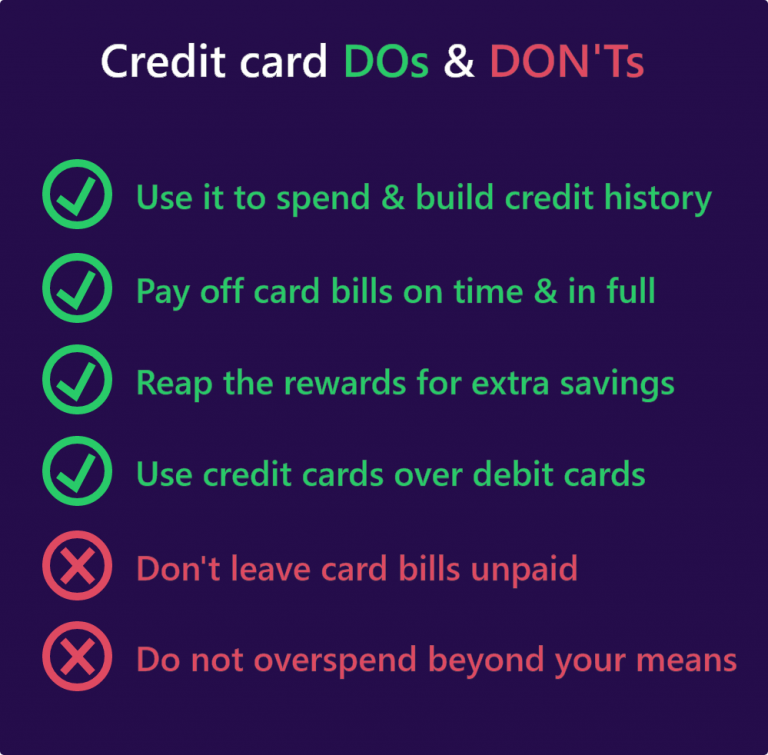Key Takeaways
- Credit cards offer various benefits to the holder such as helping them build a credit history, offering easy access to credit, fraud protection and rewards & incentives.
- The biggest pitfalls of credit cards can be ease of overspending and high interest rates.
- Use your cards smartly for your regular expenses, track them diligently, and pay off bills timely and in full.
With economies going cashless and the convenience offered by digital or card based payments, more and more people are using credit cards. Credit cards offer so many rewards, points and cashbacks on your expenditure that they become a very attractive option. But are credit cards actually beneficial for a customer? Or do these rewards only encourage you to spend more? Well, that depends. There are two kinds of credit card customers for a bank. One that they make money off and the other that they lose money on. In order to make sure you are benefitting from credit cards instead of falling into the debt trap, you need to be cognizant of the various pros and cons of its usage. Let’s explore some of these to evaluate how you can leverage credit cards to your advantage.

Biggest advantages of a credit card
Building a line of credit
The biggest benefit a credit card has to offer is not the rewards or cashbacks, but the assistance in building a credit history. Using a credit card while ensuring you pay off bills, dues or loans on the card in a timely manner helps you build a clean credit history. This is an important factor in assessing your credit worthiness when you apply for a loan in the future (such as mortgage, car loan, education loan, etc.).
Easy access to credit
Although a credit card loan is considered bad debt as it is a high interest loan, it can be a saviour in times of emergencies. If there is a sudden need for cash over and above our emergency funds, credit cards can offer quick and easy access to credit without the hassle of going through approvals or disbursal delays. You usually have a 30-60 day grace period to pay back this amount without interest being charged on it, making it free access to credit.
Fraud protection
Card scams and frauds are on the rise with data being stolen and used for unauthorised purchases. They can affect both credit or debit cards. However, with a debit card, the amount gets deducted directly from your bank account and it offers no fraud protection. For an unauthorised transaction on your credit card, your bank or the merchant where you made the purchase will bear the liability in most cases. Besides, there is always a timeframe within which you can call the bank to cancel unauthorised transactions. Thus, it is safer for the holder of the card.

Rewards and incentives
Credit cards offer attractive rewards, points or cashbacks. All of these are virtually free for the cardholder and provide some extra savings or bonuses on your purchases.
Biggest disadvantages of a credit card
High interest on loans
If you do not pay off your credit card bills on time and let the dues roll over month on month, the situation can spiral out of control very fast. Credit cards have exorbitantly high interest on the amounts borrowed and can amount to 30-40% interest per annum. Paying such high interests can never be balanced out with any amount of cashbacks and rewards and you may end up financially worse off on the other side.
Easy to overuse
With how convenient it is to swipe a card, it is safe to say that credit cards are not necessarily a shopaholic’s best friend. Combine this with no immediate deduction from your bank account, it is easy to lose track and get carried away with your spending. Unless you monitor your credit card spend diligently and treat it the same way you treat your cash withdrawals, it can be detrimental to your saving habits and can push you further away from your goals.

How should you be using your card?
It’s pretty straightforward. Reap the benefits of your credit card but avoid the pitfalls we have shared above. That’s all.

Bottom Line
Like most things, the saying ‘excess of anything is bad’ applies to credit cards too. You need to take a long hard look at whether you are really reaping the benefits of a credit card or making the issuer of your card very rich by walking right into the trap of debt driven overconsumption? As long as you go by the golden rule of not spending beyond your means (emergencies aside), you are well positioned to reap the many benefits it has to offer. Our parting words for you: don’t make money for the issuer of the credit card, do it for yourself.